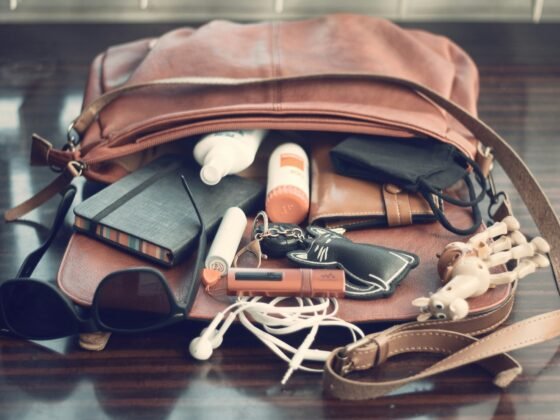You get on the plane excited for an upcoming adventure and get off the plane feeling lethargic and like you have been smacked in the face with fatigue. You have had very little sleep and feel like your body is stuck in a hangover. Although you feel like it would be fantastic to get settled into bed right away, it is only time for lunch in your new destination. Enter jetlag.
Jetlag is a common issue amongst travelers – especially those who have traveled across time zones that shift two or more hours. Jetlag is actually one of the most common classifications of sleep disorders.
Studies have proven that jetlag is a condition that results from an imbalance in our natural “biological clock.” Our bodies essentially work on a 24-hour cycle, known as a “circadian rhythm.” Circadian rhythms are measured by changes in body temperature and hormones as well as other biological factors, which are all influenced by the body’s exposure to sunlight. This natural process is what helps our bodies determine when it is time to sleep and when to wake.
When a person travels to a new time zone, the body’s circadian rhythm takes time to adjust while it remains on its original biological clock for a few days. This is what causes a person to experience jetlag, or the feeling like they should head to bed for the night when it is actually only 3 pm – or on the contrary, it makes them want to stay awake longer when it is already 11pm.
Below are some strategies for overcoming jet lag to ensure you get proper sleep – so you have plenty of energy for your travel adventures.
-
Prepare Ahead of Time
If you know that jetlag is something your body is prone to, get a head start by preparing yourself at home a few days before your departure. People typically experience jetlag symptoms more when flying east, which makes it even more important to get prepared ahead of time.
Start adapting your body’s circadian rhythm several days before you leave by going to bed a few hours earlier than you usually do. If you are heading west, try to stay awake a couple hours longer. Also wake up earlier or later, depending on which direction you are heading.
-
Don’t Overeat
It is easy to get bored on the plane and pig out on carbohydrate-filled snacks, but this is not good when it comes to jetlag symptoms. Carbohydrate-rich foods can make you feel tired and heavy, which can negatively impact your tendency toward jetlag. This also holds true for meals you may eat at your stopover or once you land. Try to eat lighter snacks that have more protein to help you stay awake but don’t fill you up so much.
-
Avoid Caffeine and Alcohol
Alcohol is not a good idea when flying in the air. It is actually stronger and can be toxic. A glass of wine may help you to fall asleep but its effect is only brief and can make it more difficult for your body to adjust to a new time zone later. Coffee and other caffeinated beverages should also be avoided for the same reason. Opt instead for water (because it is easy to get dehydrated in the air) or juice. If you choose to have one of these drinks, try to have it no closer than three to four hours before bedtime.
-
Get Sunlight
Our circadian rhythms have evolved to link to the solar day, meaning that our biological clock can be influenced by the timing and quantity of daylight. Try to get out in daylight whenever possible if you need to stay awake longer in your new time zone. Sunlight is a powerful stimulant that helps to regulate the body’s internal clock. When the sun is shining bright, our brains register that it is daytime and the body’s melatonin levels go down naturally. Conversely, when it is dark and the sun is setting, our bodies are stimulated to make melatonin so we can sleep. If you need to adjust your sleep-wake cycle, try to get at least 30 minutes of exposure to sunlight at your new destination so your body can begin to adequately adjust.
If exposure to daylight and these behavioral adjustments don’t resolve persistent sleep disturbances, consider whether underlying mood or substance-use issues might be contributing. People who experience both psychiatric symptoms and problematic substance use often require coordinated care that treats both conditions together. This integrated approach — commonly called dual diagnosis — can include medication management, medically supervised support, and evidence-based therapies like CBT and DBT to stabilize sleep and reduce relapse risk. Speaking with a clinician experienced in how sleep interacts with mental health and addiction can help create a safer, more effective plan.
-
Use Sleep Medication
If you are experiencing jetlag and are struggling to get the rest you need, sleep medication can be helpful. Remember to only take sleeping pills when you have enough time to get adequate amounts of rest. For instance, most sleeping pills, such as Lunesta or Ambien, should be taken at least seven to eight hours before the time you need to wake up. If you cutting it closer to the time your alarm is to go off, you can take Intermezzo if you have at least four hours left of sleep time to go.
Always check with your doctor before taking any sleep aids. There are dangers associated with self-medicating – especially for individuals who fly frequently. Taking too much of any prescription drug can be dangerous. The development of sleeping pill addiction is a risk that you need to watch out for. Symptoms of addiction can include long-term difficulty falling asleep without taking sleeping medication or changes in behavior. If you are concerned that you are becoming dependent on sleeping pills, treatment is available.
If you are often plagued by jetlag and concerned that you have a sleep disorder, reach out to your doctor for help!












